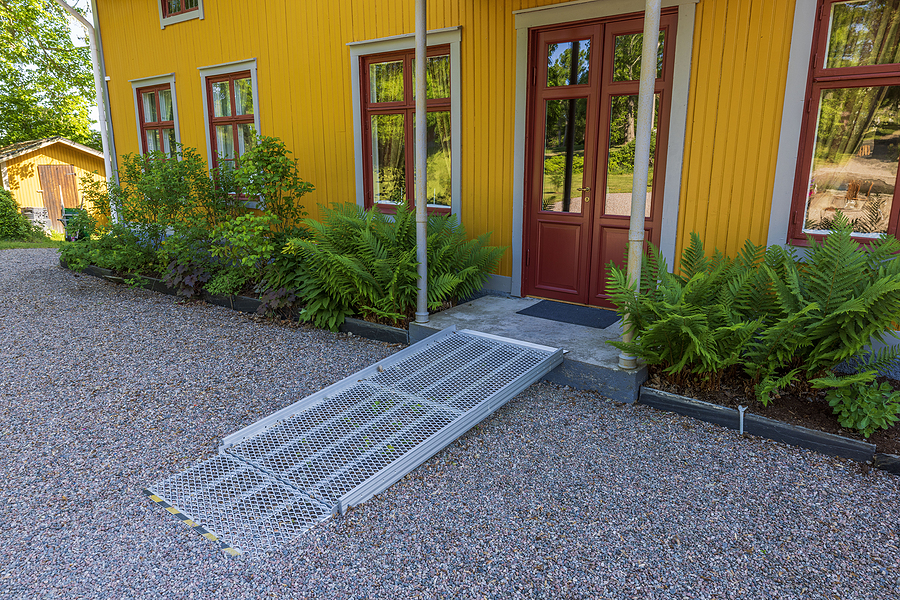Creating a home environment that is accessible and comfortable for individuals with disabilities is crucial for enhancing mobility and fostering independence. A home disability access contractor plays a vital role in adapting living spaces to meet these needs. This article will guide you through the importance of accessibility modifications, the common types of changes made, and how to choose the right contractor for your project.

Understanding the Importance of Accessibility Modifications
For individuals with disabilities, navigating a traditional home can present numerous challenges. Barriers such as stairs, narrow doorways, and high countertops can limit mobility and independence. Accessibility modifications aim to eliminate these obstacles, making daily tasks easier and allowing for greater self-sufficiency.
Modifications can also enhance safety, reducing the risk of falls and injuries. This is particularly important for aging individuals who may be at a higher risk of accidents. An accessible home can provide peace of mind for both the individual and their loved ones.
Common Accessibility Modifications
- Ramps and Lifts: Installing ramps at entrances and exits can replace stairs, providing smooth and easy access for wheelchair users. For multi-level homes, stair lifts or vertical platform lifts can be installed to facilitate movement between floors.
- Wider Doorways and Hallways: Standard doorways and hallways can be too narrow for wheelchairs or walkers. Widening these spaces allows for easier navigation and reduces the risk of accidents.
- Accessible Bathrooms: Bathrooms are one of the most crucial areas for accessibility modifications. Common changes include installing roll-in showers, grab bars, and shower seats. Lowering sinks and countertops, as well as using lever-style faucets, can also enhance usability.
- Kitchen Modifications: Adapting the kitchen involves lowering countertops, installing pull-out shelves, and creating open spaces under sinks and cooktops for wheelchair access. Lever handles on cabinets and drawers, as well as touch-controlled faucets, can make kitchen tasks more manageable.
- Flooring Changes: Replacing thick carpets with hard, non-slip surfaces like hardwood, tile, or vinyl can make it easier for wheelchairs to move and reduce tripping hazards.
- Smart Home Technology: Integrating smart home technology can significantly enhance independence. Voice-activated systems can control lighting, temperature, and security systems, making it easier for individuals with mobility impairments to manage their home environment.
- Handrails and Grab Bars: Installing handrails along hallways and grab bars in critical areas like bathrooms and staircases can provide additional support and stability.
Choosing the Right Home Disability Access Contractor
Selecting a qualified contractor is essential for ensuring that accessibility modifications are done correctly and safely. Here are some key considerations when choosing a contractor:
- Experience and Expertise: Look for contractors who specialize in accessibility modifications and have a proven track record of successful projects. They should be familiar with the specific needs of individuals with disabilities and the latest accessibility standards.
- Certifications and Credentials: Check for certifications from reputable organizations, such as the Certified Aging-in-Place Specialist (CAPS) designation. These credentials indicate that the contractor has received specialized training in accessibility modifications.
- References and Reviews: Ask for references from previous clients and read online reviews to get a sense of the contractor’s reputation and quality of work. Positive feedback from satisfied clients is a good indicator of reliability.
- Detailed Estimates and Contracts: Ensure that the contractor provides a detailed estimate that includes all aspects of the project, from materials to labor costs. The contract should clearly outline the scope of work, timelines, and payment schedules.
- Licensing and Insurance: Verify that the contractor is licensed and insured. This protects you in case of any accidents or damages during the project.
- Communication and Customer Service: A good contractor should communicate clearly and be responsive to your questions and concerns. They should be willing to discuss your specific needs and offer solutions that best meet those needs.
- Adaptability and Custom Solutions: Each individual’s needs are unique, and a good contractor should be able to offer customized solutions tailored to your specific requirements. They should be flexible and creative in finding ways to enhance accessibility in your home.
The Impact of Accessibility Modifications
Investing in accessibility modifications can significantly improve the quality of life for individuals with disabilities. It allows for greater independence, enabling individuals to perform daily tasks with ease and confidence. Additionally, an accessible home environment can reduce the physical and emotional stress on caregivers, providing them with peace of mind.
Professional Disability Access Contractor
Creating a home that is safe, functional, and comfortable for everyone is a worthwhile endeavor. With the help of a skilled home disability access contractor, you can transform your living space into a welcoming and accommodating environment that promotes mobility, independence, and overall well-being.

